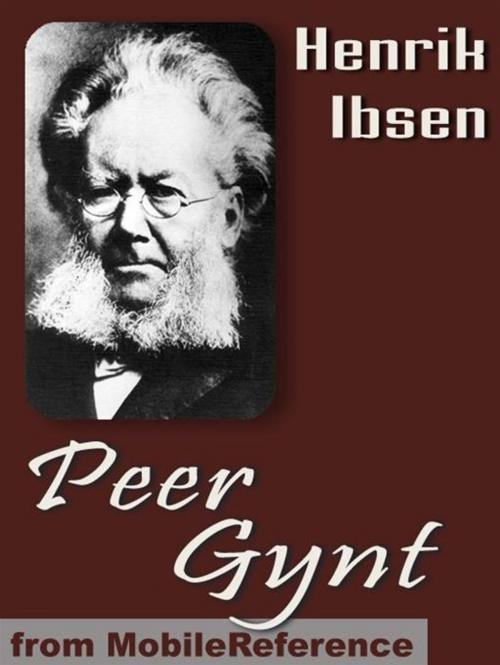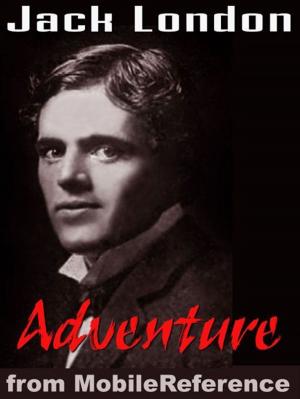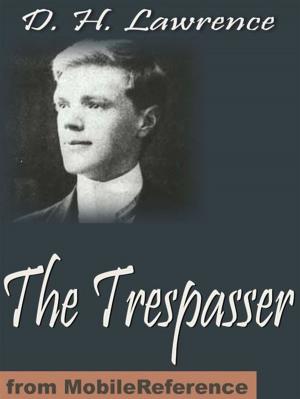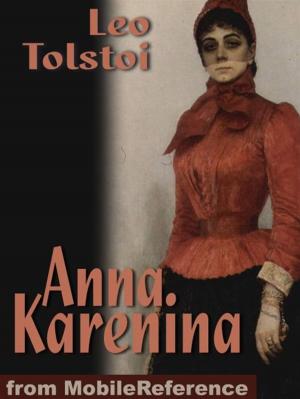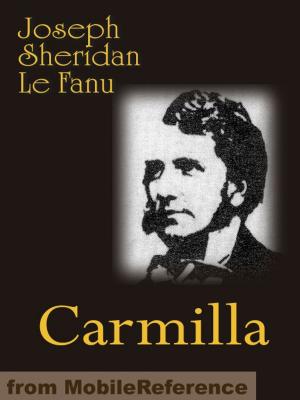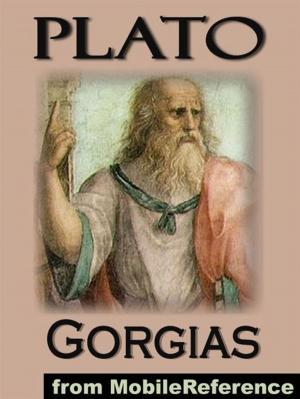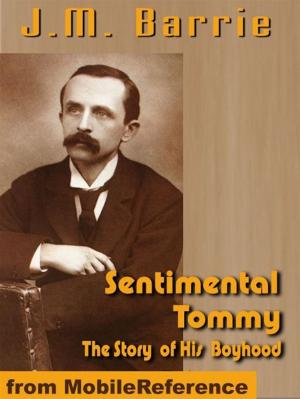Peer Gynt (Mobi Classics)
Fiction & Literature, Drama, Continental European, Nonfiction, Entertainment, Classics| Author: | Henrik Ibsen, William and Charles Archer (Translators) | ISBN: | 9781607780816 |
| Publisher: | MobileReference | Publication: | January 1, 2010 |
| Imprint: | MobileReference | Language: | English |
| Author: | Henrik Ibsen, William and Charles Archer (Translators) |
| ISBN: | 9781607780816 |
| Publisher: | MobileReference |
| Publication: | January 1, 2010 |
| Imprint: | MobileReference |
| Language: | English |
Peer Gynt is a play by the Norwegian playwright Henrik Ibsen. It was written in 1867, and first performed in Christiania (now Oslo) on February 24, 1876, with incidental music by the composer Edvard Grieg. Ibsen wrote Peer Gynt while traveling to Rome, Ischia and Sorrento. It was first published on November 14, 1867, in Copenhagen. The first edition comprised 1,250 copies. It was followed by a re-print of 2,000 copies after 14 days. The large sales were mostly due to the success of Ibsen's previous play, Brand. Unlike Ibsen's other later plays, Peer Gynt is written in verse. This is because it was originally intended to be a written drama, not for stage performance. Difficulties due to rapid and frequent change of scene (including an entire act in pitch darkness) render the play troublesome to perform. It is also unlike Ibsen's later plays in that it is a fantasy rather than a realistic tragedy. Perhaps the most famous aspects of this play are the suites of Grieg's incidental music (Peer Gynt Suite No. 1, Op. 46, and Suite No 2., Op. 55), whose well-known movements include Morgenstemning (Morning Mood), Anitras Dans (Anitra's Dance), and I Dovregubbens Hall (In the Hall of the Mountain King) from the first suite, and Solveigs Sang (Solveig's Song) from the second. Excerpted from Wikipedia, the free encyclopedia.
Peer Gynt is a play by the Norwegian playwright Henrik Ibsen. It was written in 1867, and first performed in Christiania (now Oslo) on February 24, 1876, with incidental music by the composer Edvard Grieg. Ibsen wrote Peer Gynt while traveling to Rome, Ischia and Sorrento. It was first published on November 14, 1867, in Copenhagen. The first edition comprised 1,250 copies. It was followed by a re-print of 2,000 copies after 14 days. The large sales were mostly due to the success of Ibsen's previous play, Brand. Unlike Ibsen's other later plays, Peer Gynt is written in verse. This is because it was originally intended to be a written drama, not for stage performance. Difficulties due to rapid and frequent change of scene (including an entire act in pitch darkness) render the play troublesome to perform. It is also unlike Ibsen's later plays in that it is a fantasy rather than a realistic tragedy. Perhaps the most famous aspects of this play are the suites of Grieg's incidental music (Peer Gynt Suite No. 1, Op. 46, and Suite No 2., Op. 55), whose well-known movements include Morgenstemning (Morning Mood), Anitras Dans (Anitra's Dance), and I Dovregubbens Hall (In the Hall of the Mountain King) from the first suite, and Solveigs Sang (Solveig's Song) from the second. Excerpted from Wikipedia, the free encyclopedia.
